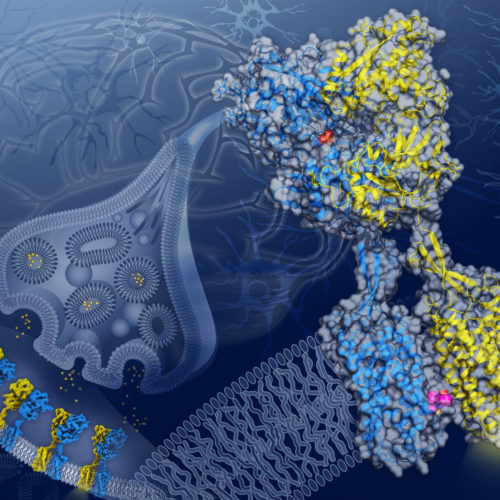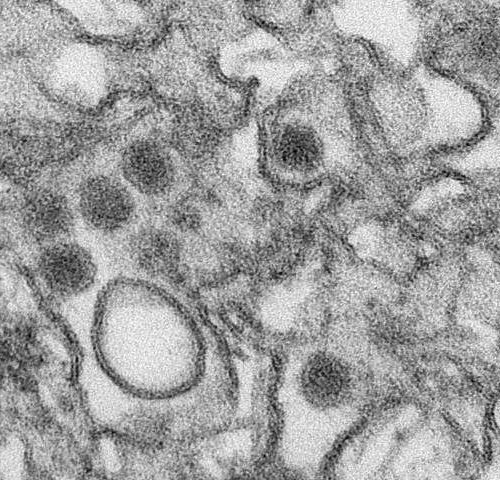The findings provide a clear path to uncovering new drugs to control addiction, pain and neurological disorders such as epilepsy and muscle spasticity CREDIT: (ILLUSTRATION BY YEKATERINA KADYSHEVSKAYA/BRIDGE INSTITUTE AT THE USC MICHELSON CENTER FOR CONVERGENT BIOSCIENCE.) As the body goes about its daily business, molecules called neurotransmitters control the level of electrical activity within...
Tag: <span>Neurological</span>
Zika infection soon after birth leads to long-term brain and behavior problems
by Emory University Researchers from the Yerkes National Primate Research Center have shown Zika virus infection soon after birth leads to long-term brain and behavior problems, including persistent socioemotional, cognitive and motor deficits, as well as abnormalities in brain structure and function. This study is one of the first to shed light on potential long-term...
FDA greenlights Neuroelectrics to help patients with Major Depression at home amidst Covid-19 restrictions
Neuroelectrics announced that the FDA has approved the Investigational Device Exemption supplemental protocol study submitted by Neuroelectrics to help patients with Major Depression Disorder (MDD) that cannot access their current non-invasive brain stimulation treatment (rTMS* or ECT**) due to COVID-19 related restrictions. COVID-19 pandemic has made evident the urgent need for a safe, effective, home-based...
Sleep-wake disturbances can predict recurrent events in stroke survivors
(Vienna, Sunday, 24 May, 2020) Stroke survivors suffering from the burden of combined sleep-wake disturbances are more likely to have another stroke or serious cardio- or cerebrovascular event compared to those without sleep-wake disturbances, according to the results of a scientific study presented today at the European Academy of Neurology (EAN) Virtual Congress. The study,...
Researchers discover biomarkers of ALS in teeth
New York, NY (May 21, 2020)–Mount Sinai scientists have identified biological markers present in childhood that relate to the degenerative and often fatal neurological disease called amyotrophic lateral sclerosis, also known as ALS or Lou Gehrig’s disease, according to a study published in the Annals of Clinical and Translational Neurology in May. (https://www.youtube.com/watch?v=Bw-_XUZssMM&feature=youtu.be) The researchers...
Treating Epilepsy with Stimulated Seizures
By Sara Ryding, B.Sc.Reviewed by Emily Henderson, B.Sc. Epilepsy is a common neurological disorder that affects 65 million people around the world. Despite being so common, it is generally not well understood and around one-third of those afflicted cannot control their condition with medication. One of the emerging ways to deal with epilepsy is to...
COVID-19: First Data Confirm Neurologic Symptoms Common
Editor’s note: Find the latest COVID-19 news and guidance in Medscape’s Coronavirus Resource Center. COVID-19 is strongly associated with neurologic manifestations, including acute cerebrovascular diseases, impaired consciousness, and skeletal muscle injury, new research shows. As previously reported by Medscape Medical News, small case and anecdotal reports suggest possible neurologic symptoms of COVID-19, but this is...
Neuroscientists reverse some behavioral symptoms of Williams Syndrome
Williams Syndrome, a rare neuro developmental disorder that affects about 1 in 10,000 babies born in the United States, produces a range of symptoms including cognitive impairments, cardiovascular problems, and extreme friendliness, or hyper sociability. In a study of mice, MIT neuroscientists have garnered new insight into the molecular mechanisms that underlie this hypersociability. They found that...
Wireless ‘pacemaker for the brain’ could offer new treatment for neurological disorders
A new neurostimulator developed by engineers at the University of California, Berkeley, can listen to and stimulate electric current in the brain at the same time, potentially delivering fine-tuned treatments to patients with diseases like epilepsy and Parkinson’s. The device, named the WAND, works like a “pacemaker for the brain,” monitoring the brain’s electrical activity...
Plasticity is enhanced but dysregulated in the aging brain
They say you can’t teach old dogs new tricks, but new research shows you can teach an old rat new sounds, even if the lesson doesn’t stick very long. Credit: CC0 Public Domain Researchers at the Montreal Neurological Institute and Hospital (The Neuro) of McGill University examined the effects of aging on neuroplasticity in the...




